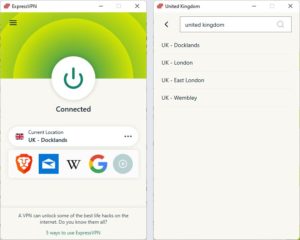
As you may know, Filecoin is one of the many cryptocurrencies available in the community. It also acts as a decentralized storage network. Protocol Labs created this one, and it builds on top of the IPS (InterPlanetary File System), meaning it allows users to rent unused hard drive space. Like all other cryptocurrencies, it uses a blockchain mechanism to record the transactions. This open-source, public cryptocurrency is not as well-known as some of the others, but Bitcoin’s high valuation means they are everywhere. Of course, part of what makes a solid cryptocurrency is the establishments that take it as payment.
How do you mine Filecoin?
Mining is a series of tasks and computations your computer does, and the tasks become increasingly complex as time continues. While Bitcoin is increasingly hard to mine, not all cryptocurrencies are like that. The lesser-known ones are easier to mine because they’re at a different place in their life cycle. Filecoin is one of them. You need to go to a designated page and download the software to mine it. Keep in mind, though, that there isn’t a Windows version yet.
Let’s look at the specifications to mine Filecoin.
- Operating System = Linux(Ubuntu) or macOS. Filecoin does not support any other system builds, so trying to run the software on a different build may make the program unstable.
- Hard disk space = At least 256 GB of very fast NVMe SSD memory space + 1 TB of slow HDD space.
- Ram = 16 GB
- GPU = Highly suggested, but not required. Though it will help speed up computations, you’ll want to avoid mixing AMD CPUs and Nvidia GPUs.
If you want to start mining Filecoin, those are the tools you need to do it. Generally, you’ll need to use a separate computer or rig. That’s because you need to use all computing power for the mining computations. However, there is one more thing you’ll want to include in this list when building or using your rig. That is a trustworthy VPN. Why do you need a VPN, you may ask? That’s because crypo-mining carries risk.
As a rule, crypto-currency is safe. That is due to the end-to-end encryption, and the way the blockchain works. On the other hand, mining poses some issues unless you connect to a VPN. These include issues with:
ISPs – Even though you may have unlimited data and high speeds on your home internet plan, mining can use quite a bit of bandwidth. With the amount of streaming and gaming people do these days, your internet service provider is watching your activities.
IP address pool tracing – If you are mining Filecoin, others can see and trace your IP address. Since it is open-source, there are many visible aspects.
Personal sharing – People often make a critical mistake when mining cryptocurrency. Mostly, that is telling others about what you’re doing on social media. Of course, you might want to tell others how well you are doing at mining, but we suggest you keep your head down. If you’re not aware, cryptojacking can happen. You’ll only make it easier for someone to cyberlift your crypto wallet. All of your hard work and electricity costs could be for nothing. Connecting to a VPN can help fight that issue. While it won’t stop you from saying something silly, it could help you stop that vulnerability.
When you connect to a VPN, you mask your IP address and encrypt your internet traffic.
How to mine Filecoin with a VPN
Once you complete your rig, follow these easy steps to start mining. For this demonstration, we’ll use ExpressVPN because we know it works well.

- Sign up for ExpressVPN (which includes a 30-day risk-free money-back guarantee)
- Download and install the ExpressVPN app on your desktop. It has apps specifically designed for Linux and macOS.
- Now, download the Filecoin files from their Github page.
- Once done, connect to the closest VPN server to you. We suggest using the Lightway protocol.
- Open the software and set everything up.
- Start mining and adding to your crypto-wallet.
- ExpressVPN has a 24/7 support team to help you if you have any issues.
That’s all you need to do to start your journey. While we used ExpressVPN, there are other options. To help you find the right VPN for Filecoin mining, you need to consider a few things with your VPN.
What to look for in a VPN for Filecoin mining
Here is our list of the most important things to look for in a VPN. The provider needs to have:
- Next-generation protocols – You need the best possible protection when you’re crypto-mining. That’s why you want to choose a VPN with next-generation protocols. These include the options of WireGuard, IKEv2, OpenVPN, and ExpressVPN’s Lightway protocol. These will all provide top-level security. Of these choices, though, some of the next-generation protocols are faster than others. We suggest using Lightway or WireGuard for the best possible speeds when mining.
- Advanced features, especially a kill switch – All trustworthy providers have a list of advanced features. While some aren’t the same, you need to choose a service that offers a kill switch. If your rig’s connection drops, your mining information becomes vulnerable unless you connect to a VPN.
- High network stability – Although kill switches are essential, it’s better if you don’t have to worry about your connection dropping. One of the best ways to do that is to choose a provider with an extensive network. The more servers you have in a location, the better chance of the server not getting overwhelmed. That’s usually the top cause of random server disconnects.
